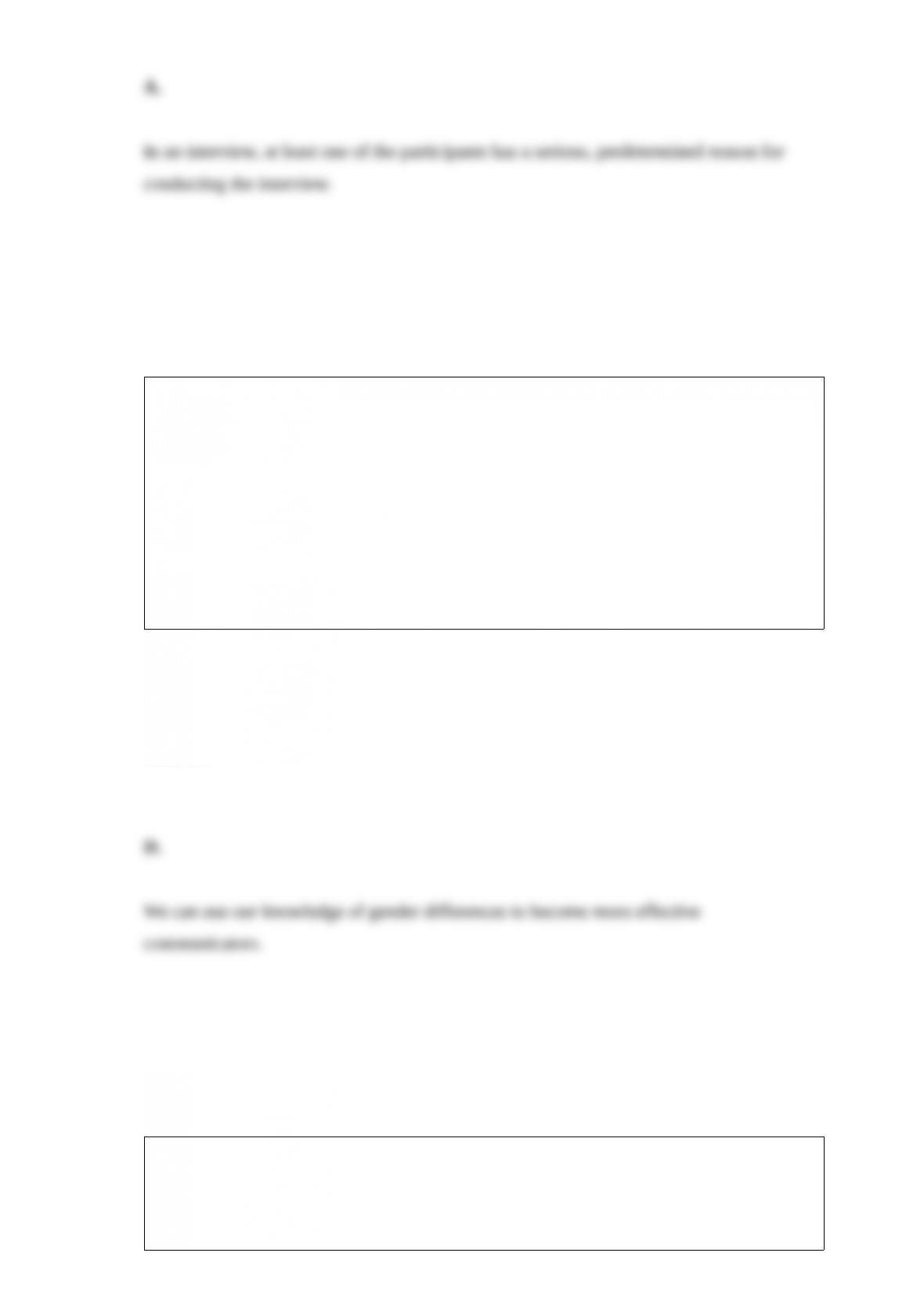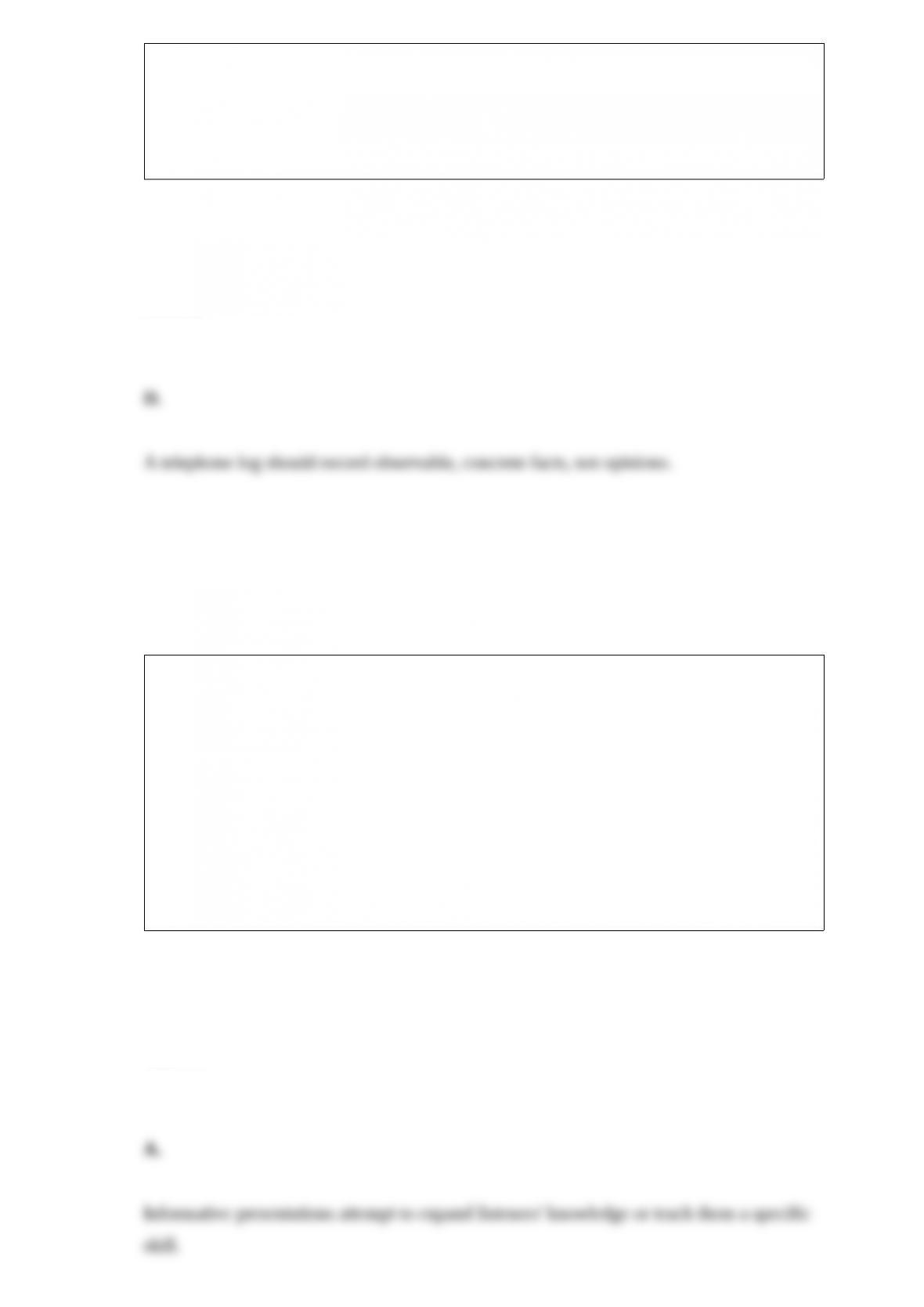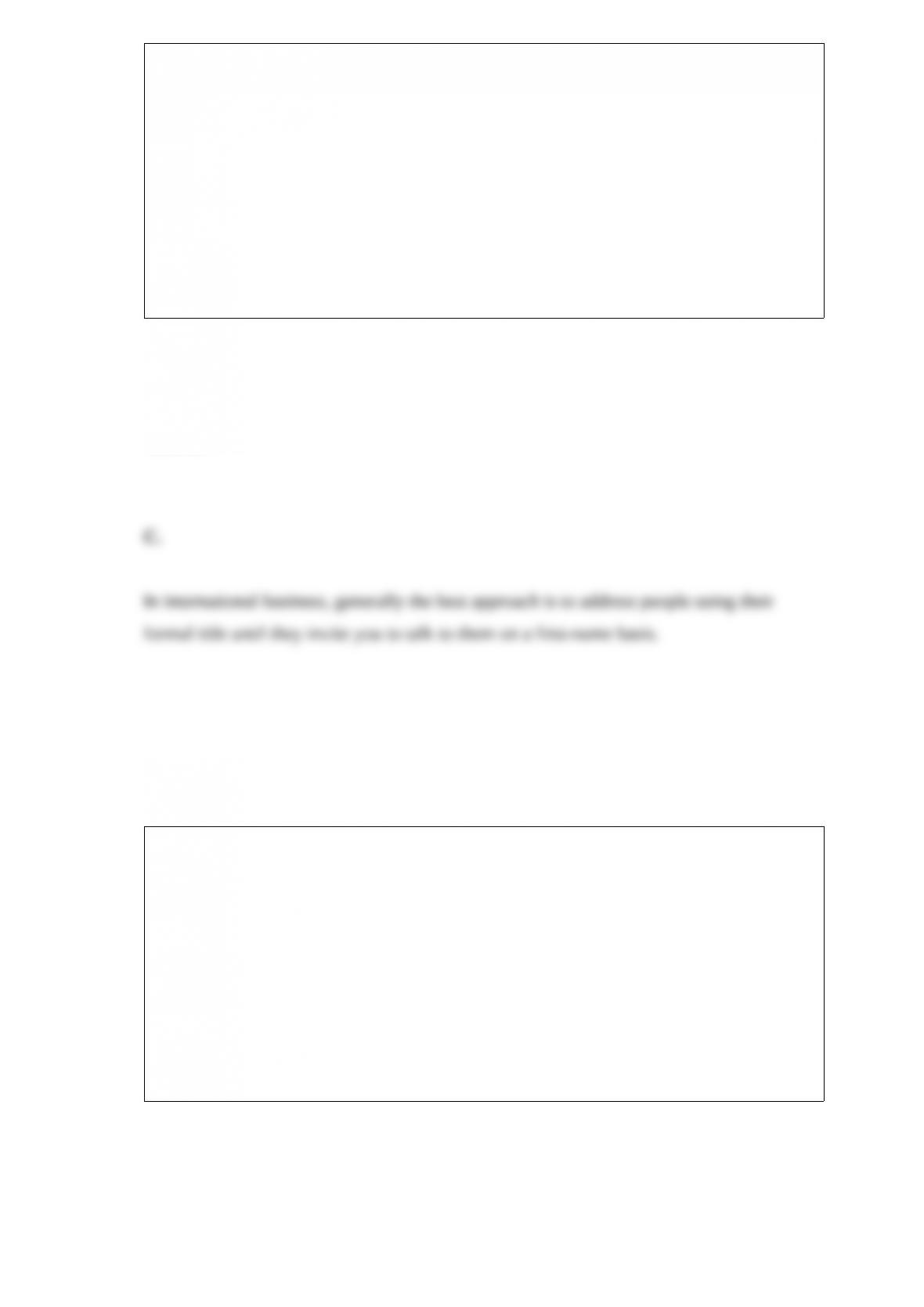Which of the following is NOT one of the characteristics of true teams (compared to
less-productive groups) that Larson and LaFasto have identified?
A. The group has no structure, to allow flexibility.
B. The group's members believe their purpose is worthwhile.
C. The group's leader creates a vision of the group's purpose.
D. The group receives recognition by outsiders.
Answer:
Which of the following is true about the interaction that occurs during a formal
interview?
A. At least one person has a serious, predetermined reason for participating.
B. The conversation does not have a specific purpose.
C. All participants know the questions ahead of time.
D. All participants know the responses to the questions ahead of time.
Answer:

































































